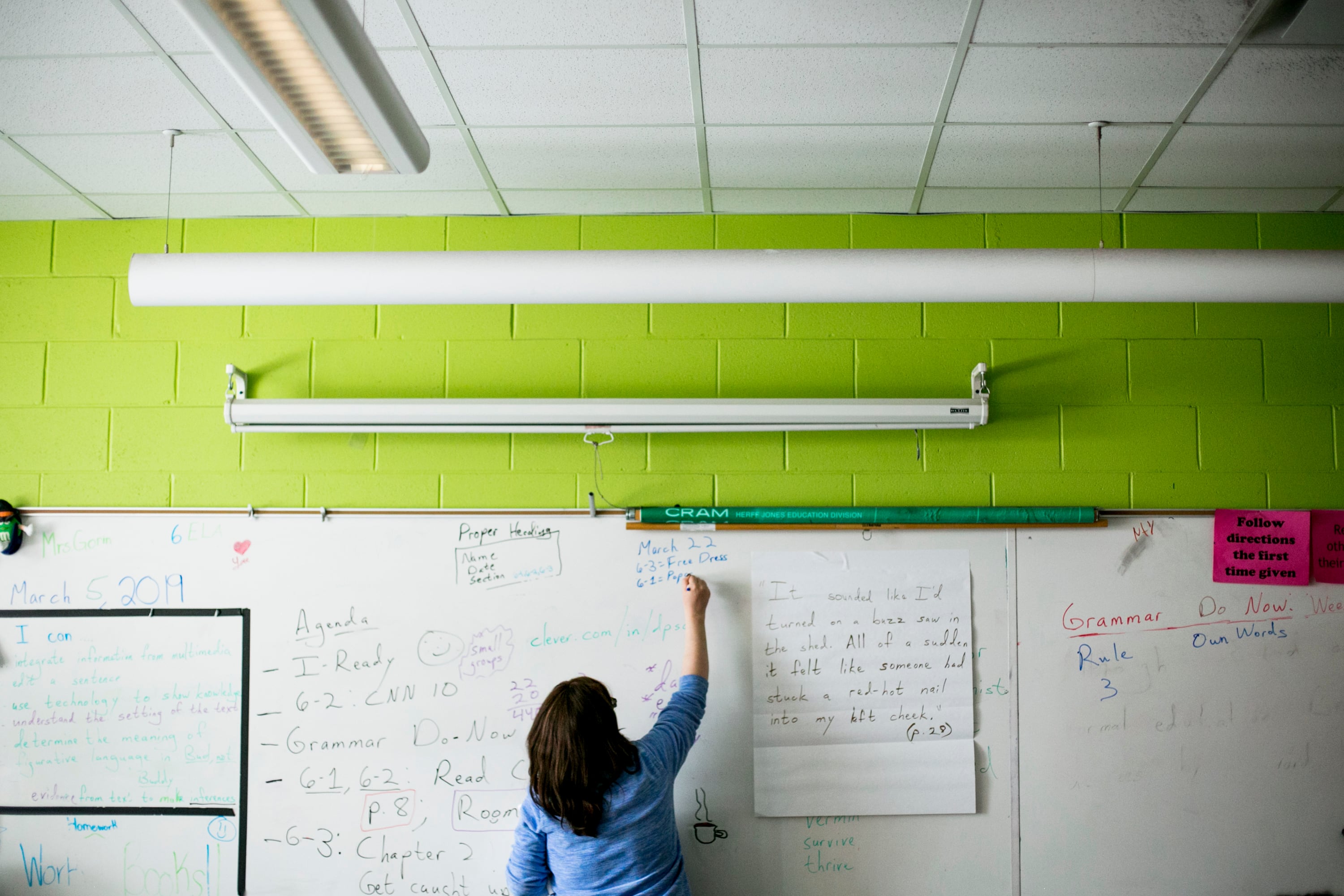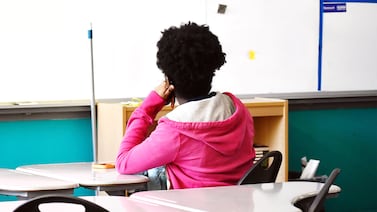The Detroit school board approved a new two-year contract for teachers Tuesday that includes pay increases for new and veteran educators as well as bonuses for special-education and mental health employees.
The new agreement means that from 2017 to the second year of the contract, which lasts until 2026, teacher salaries will have increased every year, with most veteran teachers seeing a 43% rise in base salaries, according to the Detroit Public Schools Community District. Beginning in the 2025-26 school year, veteran teachers could make as much as $94,000 a year if they have a doctorate, up from $87,000 in the last contract.
Starting salaries for new teachers will also increase, from $51,071 last year to $55,000 for the 2024-25 school year. Mid-career teachers will see a salary increase of 10% to 23%, depending on their degree. The district said its starting salaries are the highest in Michigan and exceed the U.S. average starting teacher salary by more than $10,000.
Roughly 4,500 people belong to the Detroit Federation of Teachers union, including educators, academic interventionists, counselors, psychologists, social workers, speech therapists, and attendance agents.
Union President Lakia Wilson-Lumpkins spoke on the contract during Tuesday’s board meeting, saying the DFT set a goal this year even if it was ambitious and aggressive.
“We pushed and worked ourselves beyond the limit,” she said. “The ratified agreement that you will vote on this evening is already setting the tone and tenor across the state. School districts and other union leaders, even as I stand here now, are waiting to meet with us to find out ‘how did we do it.’ Your vote tonight is a huge symbol and a testament of your commitment to our students, our families, and our educators across this country that working conditions matter.”
DFT members overwhelmingly approved the contract in late June, which was the first time in nearly three decades that the union had ratified a contract before the start of the school year.
Wilson-Lumpkins previously said the school board was amenable to accelerating negotiations after it approved Superintendent Nikolai Vitti’s latest contract in March, which was more than a year ahead of schedule. “The school board and Dr. Vitti, unbeknownst to themselves, they threw the gauntlet down,” she said during a recent press conference.
More than 1,100 members of the DFT voted in the election, with 83% approving the contract, a nearly 10-percentage-point increase in approval compared with the previous agreement.
The union sees these wins as pivotal steps in improving the district’s climate and culture — a mission central to the district under Vitti — and attracting and retaining teachers amid a national educator shortage hurting classrooms statewide, Wilson-Lumpkins told Chalkbeat previously.
Teachers and staff members will also receive a retention bonus of $2,000 for full-time staff and $1,000 for part-time members employed throughout the school year.
The contract also states that the district will offer a $15,000 annual bonus to new and current employees who support students with individualized education programs, including Exceptional Student Education teachers, ESE social workers, psychologists, speech pathologists, occupational therapists, and physical therapists. Other specified ESE employees will receive a $2,000 annual bonus. ESE is the district’s special education department.
In addition, teacher leaders, social studies and science teachers, early career mentors, and school equity leads will receive annual stipends ranging from $1,500 to $5,000. Teachers with oversized classrooms will receive $500 per marking period.
Other notable items in the contract:
- Sick-day payout will be up to $2,250 for members who provide notice of resignation.
- The district will maintain or increase its overall health care cost contribution up to the 80% threshold, with the intention to maintain current plan options and providers if competitive.
- Employees who refer job candidates who are hired will receive bonuses with amounts varying by position and subject area, up to $5,000.
Vitti said via email that the new agreement moves DPSCD closer to being more competitive with other school districts in the area. In addition, he said equitable state funding for the district is one of his long-term goals so that DPSCD teachers can be the highest paid in the country.
“When I started as superintendent and I said our teachers should be the highest paid in the country, I meant it,” he said. “I do believe teaching in DPSCD, especially in our neighborhood schools, is one of the hardest teaching assignments in the country due to the horrific legacy of emergency management, depopulation in the city and loss of funding and the concentration of poverty in the city that places more challenges on our students and community that teachers must work through every day. With this new agreement, our beginning teachers will be the highest paid in the area, which positions us to be even more competitive with a small pool of new teachers.”
Micah Walker is a reporter for BridgeDetroit. You can reach her at mwalker@bridgedetroit.com.







